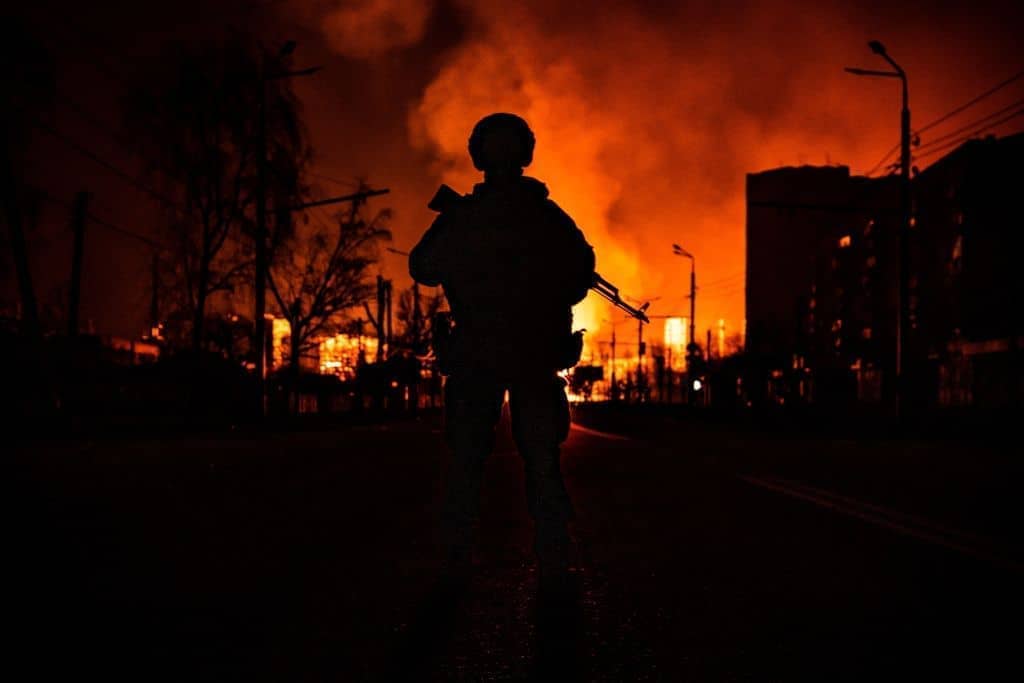In Ukraine, no one is safe from the onslaught of the Russian army. Men, women and children are all targets. And there is mounting evidence that Russian troops have been raping civilians since the onset of war last month, with sexual violence serving as part of the Russian army’s attempts to subjugate the Ukrainian population. It is a deliberate strategy. Nothing is off-limits for the Russian army.
Gruesome images were recently shared online by Mariana Betsa, ambassador of Ukraine to Estonia, to document what is happening in Ukraine. She shared an image of the body of a three-year-old girl. Betsa said the girl had been raped. Ukrainian MP Lesia Vasylenko has also accused Russian soldiers of such crimes, claiming that: ‘Russian soldiers loot, rape and kill. Ten year old girls with vaginal and rectal tears. Women with swastika-shaped burns. Russia. Russian men did this. And Russian mothers raised them. A nation of immoral criminals,’ she said.
Even when the fighting does finish and these women are able to get the help they need, they are unlikely to find justice
Ukrainian women have shared their horrific tales with journalists and charities. Human Rights Watch has also been collecting stories from victims of sexual violence, including a woman who told them that ‘a Russian soldier had repeatedly raped her in a school in the Kharkiv region where she and her family had been sheltering on 13 March. She said that he beat her and cut her face, neck, and hair with a knife.’
Kateryna Cherepakha, president of La Strada Ukraine, a charity which supports sexual assault survivors, said they have received several calls from women and girls who have been attacked. ‘In most cases,’ she said, ‘it’s been impossible to help them physically. We haven’t been able to reach them because of the fighting.’
Even when the fighting does finish and these women are able to get the help they need, they are unlikely to find justice. In times of war, gender-based violence rarely gets the focus it deserves: while Jewish women were systematically targeted by the German military during the Holocaust, this pattern of rape was all too often denied or ignored by historians of world war two. Jewish, German and Soviet scholars all had different reasons for turning a blind eye to what had unfolded.
A similar silence followed the rape of thousands of women and girls by the Japanese Imperial Army in Nanjing (1937-1938) and the mass rape of civilians by the Red Army in its pursuit to liberate Europe in the dying days of world war two. In the aftermath of wars, women who have been attacked are concerned that in sharing the story of their trauma they may be rejected by their family and community, and will not be able to reintegrate or marry. Women can also fear retribution from attackers in conflict where perpetrators have been reintegrated into society.
Another reason for women remaining silent is that victims suffer extreme guilt for having survived and being held for rape, rather than executed. This has been well documented by Human Rights Watch in its harrowing report on sexual violence during the Rwandan conflict. The report also details the lingering concern surrounding widespread sexual health issues which can arise because of rape, as well as the fact that in several countries across the world abortion is illegal. This means that women often have to give birth to these children, who are viewed as ‘children of hate’. Some women subsequently abandon the babies, or commit infanticide; those who keep the children can cause deep divisions in the family and community.
In Ukraine, a number of women have come forward and bravely shared their stories, but not all women who have been attacked by Russians solders will feel able to. The tales emerging from Ukraine are horrifying but it is vital that the West does not turn a blind eye to what is happening. Only by encouraging these women to speak out will there be any hope of eventually holding the Russian state accountable for these terrible crimes.






Comments